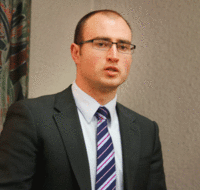Cecily McNeill
2 August 2012
New Zealand may be setting the scene for mass suicides if an amendment to the immigration law allowing for mandatory detention of asylum seekers is passed.
Changes to the Immigration Bill 2009 designed to keep out so-called ‘people smugglers’ and ‘queue jumpers’ are driven by fear and ignorance according to 39 submissions to the select committee considering the amendment.
Caritas, The Law Society, The Australian Office for Migrants and Refugees and the Office for Human Rights submitted to the select committee on Thursday June 28 that the law change was illegal in terms of New Zealand’s international obligations and should be withdrawn.
 Joe Moloney of the Australian Catholic Migrant and Refugee Office told a meeting in Connolly Hall that evening that in the past two years there have been nine suicides in detention camps, more than 370 suicide attempts and 386 self harm incidents ‘and these figures include children yet the mandatory detention hasn’t stopped boat journeys’.
Joe Moloney of the Australian Catholic Migrant and Refugee Office told a meeting in Connolly Hall that evening that in the past two years there have been nine suicides in detention camps, more than 370 suicide attempts and 386 self harm incidents ‘and these figures include children yet the mandatory detention hasn’t stopped boat journeys’.
Joe said most refugees come by air on a visitor’s visa and apply for refugee status when they arrive. Those who come by boat have not been able to meet the criteria for a visa, ‘probably because they do not have the necessary documents’.
‘They will have sold everything they had to buy the boat and may have had to make a hasty getaway from a war-torn country.’
Afghanistan, Iran, Iraq and Sri Lanka are in the top 10 countries from which asylum seekers flee to Australia.
‘They are driven out of their countries because of war and famine. They may not be aware of the consequences of taking a boat journey or they may see it as a risk worth taking for their families.’
Roland Woods of the Law Society told the meeting the bill is illegal because New Zealand is a signatory to the Universal Declaration of Human Rights.
Race relations commissioner Joris de Bres told the select committee that there was no queue. New Zealand has an agreed annual quota of 750 with the United Nations High Commissioner for Refugees. ‘Then there are people who come here as asylum seekers.
‘Countries have a responsibility to deal with these people as individuals.’
Citing a group of 10 New Zealand-bound asylum seekers who made it to Perth in Western Australia and decided they didn’t want to continue the journey, he said the ocean is a much more effective mechanism than the Immigration Amendment Bill.
He said regardless of cost, people will still flee from terror and war. And it’s the war not the refugees that drives people to seek asylum. ‘The cost of detention is massively more than the cost of welcome.’
‘And what about our humanity? Why aren’t we recognising that we’re talking about people who are fleeing a situation which all of us would have a nightmare about experiencing.
‘They have the right but we have a duty of humanity and respect for human rights.’
‘It is important to distinguish between asylum seekers who are legal and other immigrants who are not,’ Mr Woods says.
Asylum seekers become refugee claimants when they apply for refugee status under the United Nations Convention for Refugees. Once their application is found to be justified, they are recognised as refugees.
‘This means everyone who arrives in NZ and claims refugee status has the right to be here, has the right to have their claims considered through the appropriate process. They’re not illegal, they’re not queue jumpers.’
In the climate of fear that has whipped up anti-asylum seeker sentiment, Australia has found that more than 90 percent of asylum seekers are proper, bona fide refugees under the convention.
The amendment would:
Allow the mandatory detention of groups of 11 or more asylum seekers for an initial period of six months, followed by renewable 28 day periods;
Allow the detention of children with parents (only unaccompanied minors are excluded from the Bill);
Delay consideration of permanent residence for three years after recognition of refugee status;
Permanently restrict family reunification only to spouses and children;
Provide for the suspension of refugee application processes;
Restrict access to judicial review.
 The Australian Catholic Bishops Conference has opposed mandatory detention of refugees for the past decade, saying it is ‘deeply destructive of human dignity’.
The Australian Catholic Bishops Conference has opposed mandatory detention of refugees for the past decade, saying it is ‘deeply destructive of human dignity’.
Detention beyond the minimum time necessary to carry out security and identity checks is ‘gravely injurious’ and unjustifiable.
They point to the ‘widespread and significant psychological damage’ caused, particularly to people who may already have been traumatised by violence, imprisonment and torture. They also note it is costly in both financial and social terms.
Images, from top: Joe Moloney of the Australian Catholic Migrant and Refugee Office.
Mohammad Ali Amiri, of the Afghan Association of Wellington, arrived in Australia on the Tampa – after fleeing war, the SAS held him at gunpoint.